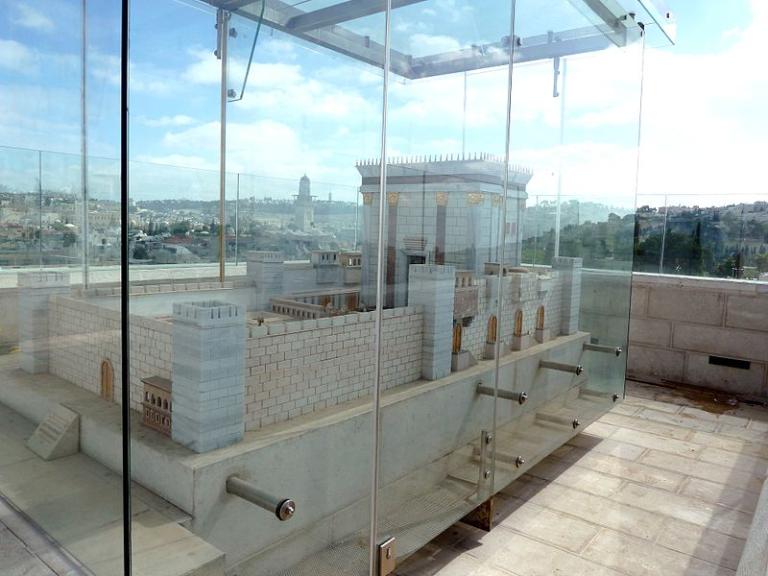
(Wikimedia commons public domain photograph)
***
An article by David J. Larsen has just appeared in Interpreter: A Journal of Latter-day Saint Faith and Scholarship:
“From Dust to Exalted Crown:Royal and Temple Themes Common to the Psalms and the Dead Sea Scrolls”
Abstract: David J. Larsen, after showing how many of the Qumran texts rely on the “Royal Psalms” in the Bible—which have a vital connection to the temple drama—then goes on to exaltation in the views of the Qumran community. He indicates how Adam and Eve are archetypal for Israelite temple ritual, which makes humans kings and priests, bringing the participant into the presence of God by a journey accompanied with covenants, making him part of the Divine Council. Bestowed with knowledge of the divine mysteries, one then becomes a teacher helping others on the way through divine mysteries, who then, as a group are raised to the same end. It is, Larsen shows, a journey where one is dressed in royal and priestly robes and receives a crown of righteousness, in a ritual setting.
[Editor’s Note: Part of our book chapter reprint series, this article is reprinted here as a service to the LDS community. Original pagination and page numbers have necessarily changed, otherwise the reprint has the same content as the original.
***
Interpreter Radio Show — May 16, 2021
The discussants for the 16 May 2021 broadcast of the Interpreter Radio Show were Kris Frederickson and Martin Tanner. In this episode of the show, they first discussed finding answers to gospel questions and difficult items through prayer and revelation. The second portion of the show was devoted to a roundtable discussing the upcoming Come Follow Me lesson #26 (D&C 67-70). The Interpreter Radio Show can be heard Sunday evenings from 7 to 9 PM (MDT), on K-TALK, AM 1640, or you can listen live on the Internet at ktalkmedia.com.
***
And now, as is my habit these days, I provide some links to previously published Interpreter articles:
John S. Robertson, “Exploring Semitic and Egyptian in Uto-Aztecan Languages”
Review of Brian D. Stubbs, Exploring the Explanatory Power of Semitic and Egyptian in Uto-Aztecan, Provo, UT: Grover Publications, 2015. 436 pp. $30.
[For my own brief take on the book by Brian Stubbs, as well as on this review of it and one other, see my column “Near Eastern languages in ancient America?” which was published in the Deseret News four years ago tomorrow]
Brian C. Hales, “Joseph Smith: Monogamist or Polygamist?”
Abstract: In the past decades much of the debate regarding Joseph Smith and plural marriage has focused on his motivation — whether libido or divine inspiration drove the process. Throughout these debates, a small group of observers and participants have maintained that Joseph did not practice polygamy at any time or that his polygamous sealings were nonsexual spiritual marriages. Rather than simply provide supportive evidence for Joseph Smith’s active involvement with plural marriage, this article examines the primary arguments advanced by monogamist proponents to show that important weaknesses exist in each line of reasoning.
Abstract: Nephi’s preservation of the conditional “first blessing” that Lehi bestowed upon his elder sons (Laman, Lemuel, and Sam) and the sons of Ishmael, contains a dramatic wordplay on the name Ishmael in 2 Nephi 1:28–29. The name Ishmael — “May El hear [him],” “May El hearken,” or “El Has Hearkened” — derives from the Semitic (and later Hebrew) verb šāmaʿ (to “hear,” “hearken,” or “obey”). Lehi’s rhetorical wordplay juxtaposes the name Ishmael with a clustering of the verbs “obey” and “hearken,” both usually represented in Hebrew by the verb šāmaʿ. Lehi’s blessing is predicated on his sons’ and the sons of Ishmael’s “hearkening” to Nephi (“if ye will hearken”). Conversely, failure to “hearken” (“but if ye will not hearken”) would precipitate withdrawal of the “first blessing.” Accordingly, when Nephi was forced to flee from Laman, Lemuel, and the sons of Ishmael, Lehi’s “first blessing” was activated for Nephi and all those who “hearkened” to his spiritual leadership, including members of Ishmael’s family (2 Nephi 5:6), while it was withdrawn from Laman, Lemuel, the sons of Ishmael, and those who sympathized with them, “inasmuch as they [would] not hearken” unto Nephi (2 Nephi 5:20). Centuries later, when Ammon and his brothers convert many Lamanites to the truth, Mormon revisits Lehi’s conditional blessing and the issue of “hearkening” in terms of Ishmael and the receptivity of the Ishmaelites. Many Ishmaelite-Lamanites “hear” or “hearken” to Ammon et al., activating Lehi’s “first blessing,” while many others — including the ex-Nephite Amalekites/Amlicites — do not, thus activating (or reactivating) Lehi’s curse.
A. Keith Thompson, “Apostate Religion in the Book of Mormon”
Abstract: Nephite missionaries in the first century BC had significant difficulty preaching the gospel among Nephites and Lamanites who followed Zoramite and Nehorite teaching. Both of these groups built synagogues and other places of worship suggesting that some of their beliefs originated in Israelite practice, but both denied the coming or the necessity of a Messiah. This article explores the nature of Zoramite and Nehorite beliefs, identifies how their beliefs and practices differed from orthodox Nephite teaching, and suggests that some of these religious differences are attributable to cultural and political differences that resonate in the present.
***
I’ve made it clear enough here, I think, that, in the case of the Colorado cake decorator who declined to celebrate a same-sex wedding, I’m firmly on the side of the cake decorator. Well, here he is, speaking in his own voice:
Jack Phillips, “Why I Didn’t ‘Just Bake the Cake.'”
And, to clarify further: My stance on the matter isn’t a result of my opinions on homosexuality and gay marriage. And, yes, I also believe that he has the right, should he ever choose to exercise it, to decline to celebrate a Latter-day Saint temple wedding — just as everybody else has the right, if they’re so minded, to disapprove of his decision, to avoid patronizing his business, and so forth. I really do believe in free markets and voluntary exchanges.
Some of you will find this essay by Hanna Seariac of interest:
Finally, and perhaps in connection with an article to which I called attention last week — see “Is America on a ‘one-way trip to secularism’? Is Europe?” — some readers might enjoy the analysis provided here:
“America Loses Religion, Somewhat: Religiosity waxes and wanes, and decline is not irreversible”












